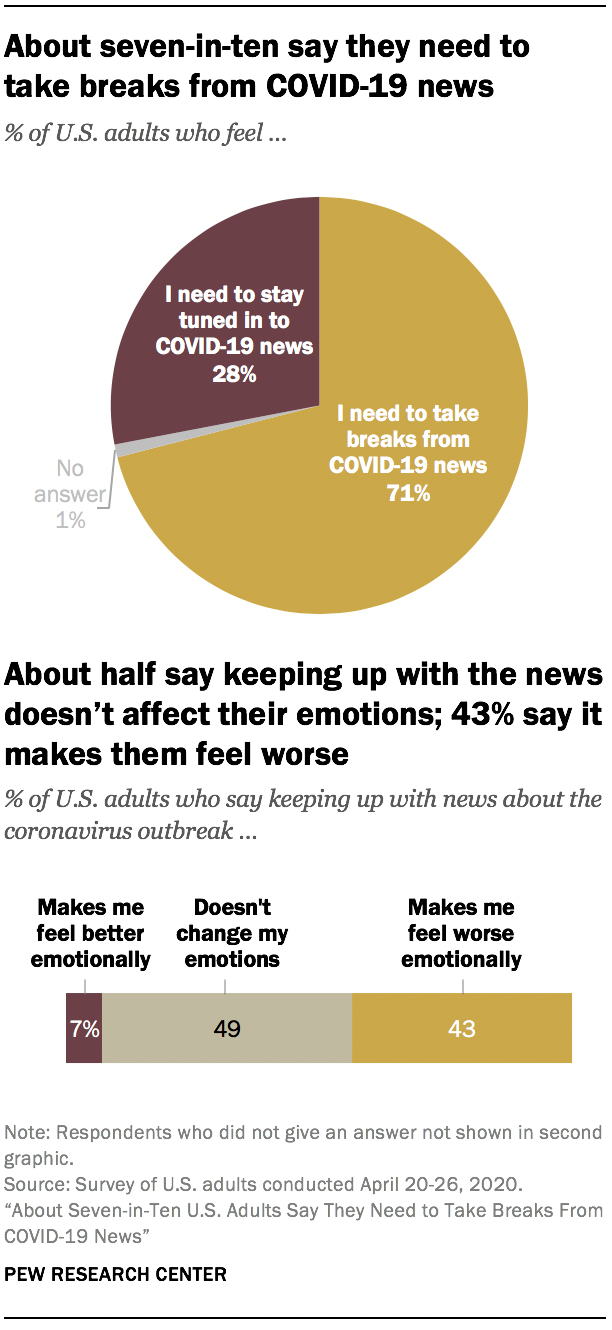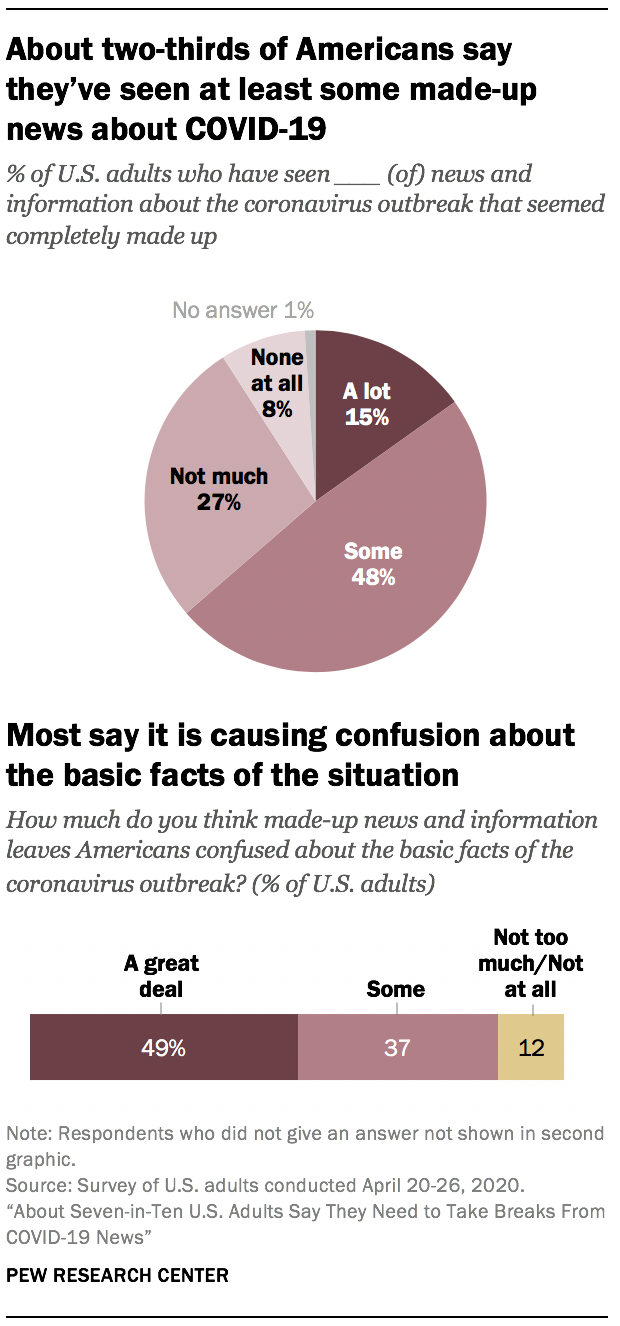 The constant churn of news updates, events and asserted claims related to the outbreak has left most Americans feeling a need to take a break from COVID-19 news from time to time. And many say keeping up with this news has a negative impact on their state of mind.
The constant churn of news updates, events and asserted claims related to the outbreak has left most Americans feeling a need to take a break from COVID-19 news from time to time. And many say keeping up with this news has a negative impact on their state of mind.
About seven-in-ten (71%) say they feel the need to take breaks from news about the outbreak, compared with about three-in-ten (28%) who say they need to stay tuned in.
At the same time, about four-in-ten U.S. adults (43%) say that keeping up with the news makes them feel worse emotionally. Only 7% say it makes them feel better emotionally, while about half (49%) say it doesn’t change their emotions.
Overall, Americans are about evenly split between those who say they find it easy to determine what is true and not true about the outbreak (49%) and those who find it difficult to do so (50%).
 More broadly, close to two-thirds of adults (64%) say they have seen at least some news and information about the coronavirus that seemed completely made up. (Another 27% have seen “not much,” while a small segment, just 8%, say they’ve not come across any.)
More broadly, close to two-thirds of adults (64%) say they have seen at least some news and information about the coronavirus that seemed completely made up. (Another 27% have seen “not much,” while a small segment, just 8%, say they’ve not come across any.)
These encounters with perceived made-up news related to the coronavirus are accompanied by a vast majority of Americans worrying that bad information is creating confusion about the basic facts surrounding the outbreak. About half (49%) say made-up news has led to a great deal of confusion among Americans about the basic facts. Another 37% say it has caused some confusion, while very few (12%) say it has led to not too much confusion or none at all.
To add to this uncertainty about whether information is credible, about four-in-ten (38%) say they came across made-up information that they at first thought was true but later learned it was false.


